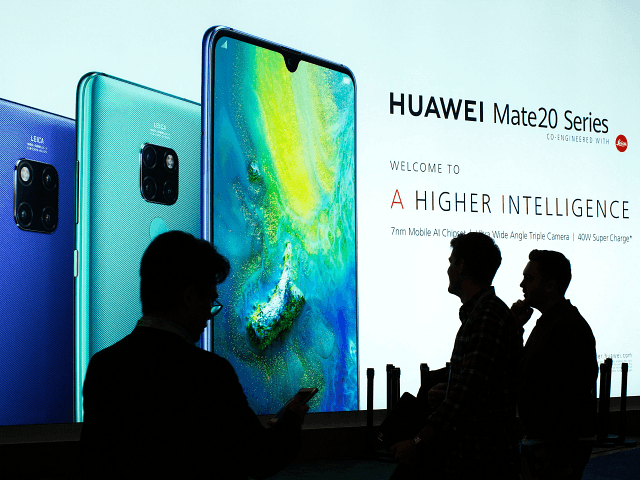Last week, President Trump signed an executive order effectively barring Chinese telecom giant Huawei from doing business in the United States.
The executive order bans American telecommunications firms from installing foreign-made equipment that could pose a threat to national security.
If this is like most days, the news cycle will not permit the president’s order to get the attention it deserves.
That’s unfortunate, because the scope and importance of this issue cannot be overstated.
Over the last year, President Trump and others have warned of the threat Huawei poses.
Huawei is the world’s third largest smartphone manufacturer and world’s largest supplier of network equipment for Internet and mobile phone companies.
Serving numerous wireless and internet providers around the world, including smaller companies that serve rural areas in the U.S., Huawei is now a leading contender to roll out the next generation of wireless technology, 5G.
Super-high speed 5G networks will be the infrastructure through which all data and information flows, connecting people, machines, power grids, and yet-to-be developed technologies such as self-driving vehicles.
Whoever controls this infrastructure controls everything.
That’s why the government of China has made 5G wireless networks a national strategic priority. Beijing has invested more than $400 billion in the development of 5G, providing subsidies that allow Huawei to underbid competitors and lock up contracts to build 5G networks around the world.
FBI Director Christopher Wray has said whoever controls 5G has the ability to control our telecommunications infrastructure, “to maliciously modify or steal information [and] conduct undetected espionage.”
This makes Huawei 5G acutely dangerous.
For you see, while Huawei claims to be just another independent telecom company, that’s just not the case.
China’s 2017 Intelligence Law clearly states that any “organization or citizen shall support, assist, and cooperate with” China’s security services. That law applies to Huawei and all Chinese companies.
Our most respected military leaders, including recent commanders of NATO, the U.S. European and Pacific commands, and Lt. Gen. James R. Clapper Jr. who served as director of national intelligence in the Obama administration, have warned of the danger of using Chinese 5G technology and equipment.
“The Chinese Cyber Security Law and other national strategies like ‘Military-Civil Fusion’ mean that nothing Chinese firms do can be independent of the state. Firms must support the law enforcement, intelligence, and national security interests of the Chinese Communist Party,” they wrote.
“Chinese-designed 5G networks will provide near-persistent data transfer back to China that the Chinese government could capture at will,” they warned.
This puts Huawei in the espionage business, a junior partner to the Chinese Communist Party’s intelligence services.
Huawei’s activities have already raised red flags.
In January, U.S. prosecutors charged Huawei with conspiring to steal T-Mobile trade secrets.
Huawei’s chief financial officer is currently under house arrest in Canada, where she awaits extradition to the U.S. on charges the company violated sanctions against Iran.
And Europe’s biggest phone company found hidden backdoors in Huawei equipment that would give the Chinese company unauthorized access to phone and Internet user data.
China has been transparent about its goal: to replace the United States as the world’s dominant economic and military power. And it expects to achieve that goal in the next 20 years.
We see this in the South China Sea, where China is building military bases on artificial islands to controls the routes our Navy uses to defend our allies in Japan, Taiwan, Korea, and India.
We see this with China’s Belt and Road Initiative, a string of ports, railroads, mines, and major infrastructure projects Beijing is building to lock up resources and strategic chokepoints around the world.
We see this in Beijing’s Made in China 2025 plan, which identifies the strategic industries China seeks to control on a global scale. The Justice Department has called it “a roadmap to theft,”
The problem is not that China wants to dominate critical technologies. The problem is the means it’s using to do so – intellectual property theft on a massive scale.
And Huawei is a crucial part of that plan.
If Huawei makes the 5G infrastructure through which all information flows, China will be able to control – and steal – everything. Privacy, trade secrets, military secrets, proprietary knowledge – nothing will escape the jealous eyes of Beijing.
The threat is hiding in plain sight.
Too often, politicians in both parties look only as far as the next election. Now its time to look to the future and, working together, make sure China doesn’t shut us out of it.
Sean Spicer is a Senior Advisor for America First Action and former White House press secretary.

COMMENTS
Please let us know if you're having issues with commenting.